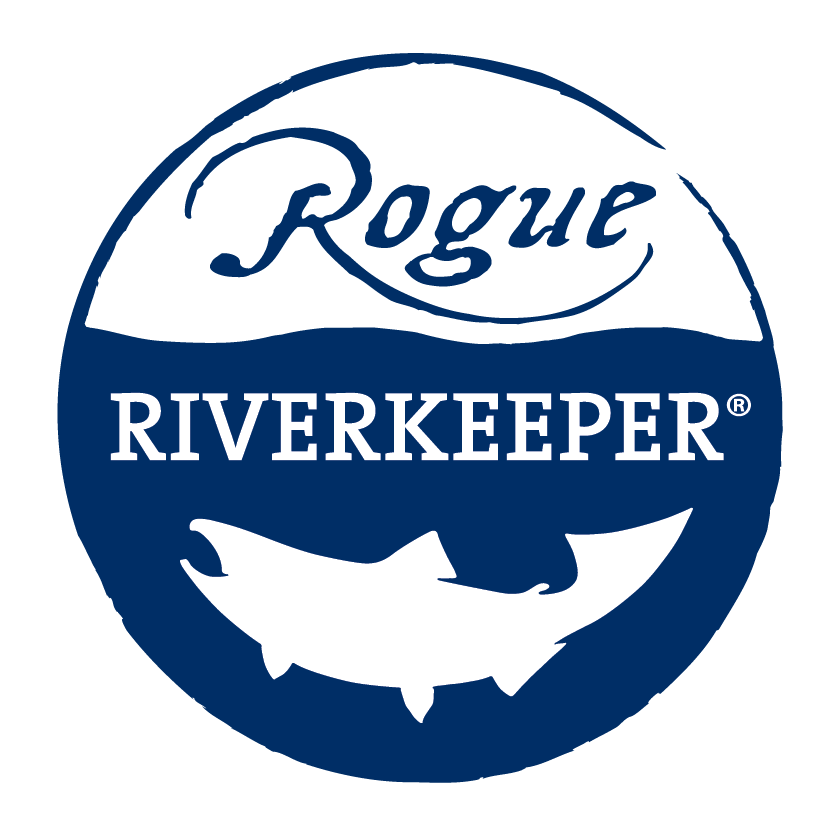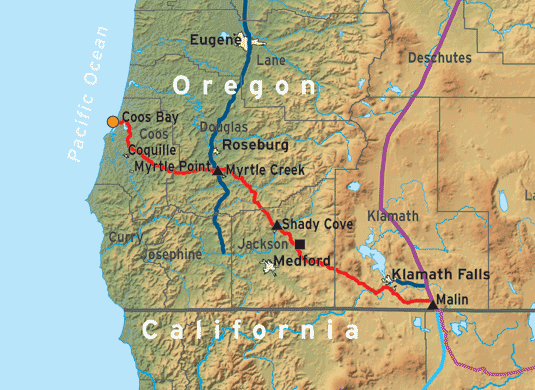Stopping the Jordan Cove Liquefied Natural Gas (LNG) Project
A massive fracked gas export terminal and associated Pacific Connector pipeline is proposed for southern Oregon that would stretch 229 miles from Malin, Oregon to Coos Bay, Oregon. The Jordan Cove Liquefied Natural Gas (LNG) project is a proposal by Canadian energy corporation, Pembina, to ship fracked natural gas from Canada and the Rockies through southern Oregon to the coast to be shipped overseas.
The proposed 229-mile Pacific Connector Pipeline route through southern Oregon.
The Pacific Connector Pipeline, also known as the “LNG Pipeline,” would impact more than 485 rivers, streams and wetlands including the Rogue, Klamath, and Umpqua rivers. Many of the 600 landowners who would be directly impacted by the pipeline will face eminent domain if they don’t give up their property for the pipeline route. Constructing the pipeline would require clear-cutting a 95-foot buffer through public lands impacting a region with significant fire and earthquake hazards.
Rogue Riverkeeper has been working to stop the Jordan Cove LNG Project since its inception in the mid-2000’s. With our coalition partners at Rogue Climate, we have helped bring this issue statewide and national attention. The Jordan Cove LNG Project is the only LNG export project proposed for the US west coast threatening our rivers, private property, tribal territories, public lands, communities, and climate.
We are determined to stop this project to protect the Rogue River, our communities, and our climate.
At Rogue Riverkeeper, we work to defend against the Jordan Cove LNG project by:
Leading a coalition to oppose the Pacific Connector pipeline & Jordan Cove LNG terminal;
Tracking and responding to state and federal permitting processes;
Reviewing thousands of pages of permit applications and sharing information with our community;
Writing and submitting technical comments about the impacts to the health of the Rogue and our communities;
Working with community members to demonstrate local opposition to the project; and
Protecting the Rogue and its fish from this harmful project.






